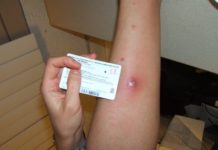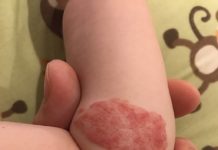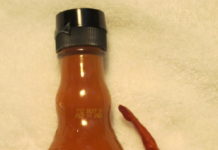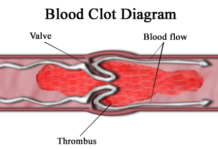 If you are thinking of getting a tattoo it’s important to get the facts. Tattoos can be marvelous works of art that symbolize something or someone in your life, but are there any health risks?
If you are thinking of getting a tattoo it’s important to get the facts. Tattoos can be marvelous works of art that symbolize something or someone in your life, but are there any health risks?
According to Shaun Oldershaw, there are very few risks from getting a tattoo as long as a professional does them. Oldershaw is a tattoo artist at Cheap Trx on Grand Avenue in Saint Louis, and has been tattooing for nearly eight years.
Minor risks include allergic reactions to latex in the surgical gloves or to pigments of the tattoo ink, says Oldershaw. “Allergic reactions are pretty much person to person.”
However, you might run into more serious trouble if you go to “scratchers”. A scratcher is a tattoo artist’s term for a nonprofessional who performs tattoos out of their own houses. Those are the people spreading disease, if not just doing bad work, states Oldershaw.
If you go to a scratcher you run the risk of getting hepatitis. As far as getting HIV from tattooing, well its sort of a myth claims Oldershaw.
Centers for Disease Control does declare that the risk still exists in getting HIV from tattoos.
Oldershaw says there are simple ways to deal with the allergic problems in his shop. For example, nitrile rather than latex gloves can be used to avoid latex allergies.
Red ink is usually the pigment that is the most hazardous for allergic reactions, says Oldershaw. Pigments can cause an allergic reaction to the skin in different ways. For some the skin might just completely reject the ink, while others will just be irritated and take longer to heal.
“There’s an occasional person who has an allergic reaction to the ink or a rough feel. Touch ups here are free,” says Oldershaw.
Like other professionals, Oldershaw has to have a license. The Missouri Office of Tattooing, Body piercing and Branding licenses Oldershaw. Occasionally, an inspector from the office comes to check if everything is clean and going right, he adds.
Oldershaw says that if you are looking to get a tattoo, inspect the artist’s portfolio to see if it’s the style you are looking for. Look around the shop, see if they have barrier film on everything and bags on bottles, and that things don’t have a chance of cross contamination. “Make sure the shop has a clean room,” adds Oldershaw. Most tattoo places use autoclaves as a way to sterilize needles, but since everything comes prepackaged it is not necessary.
At any age people get tattoos. Most get tattoos in their 20,s or 30’s. “I’ve tattooed people that are 80,” says Oldershaw. Just remember its permanent.

This work is licensed under a Creative Commons Attribution-NonCommercial-NoDerivs 3.0 Unported License














I’m still amazed at how well you did on this article, Ariel. Well done!
Great information about getting a tattoo. I can’t imagine going to a scratcher other than to save money, but the risks aren’t really worth the savings. Tattoo supplies are probably cleaner at a professional anyway. [url]http://www.eikondevice.com[/url]
Thank you David, Id like to think that too.
Thank you Tatooistman, i appreciate your comment. The risks are definetly not worth it.
the article is written very well
This is good. tattoing is not for everyBody.
uhmm i still want a tattoo but i dont want a big one so yeah bye(:
wow! i knew what kind of risks there is now.
THis article was very informative. I did not know about the health risks associated with tattooing until now. I also did not know that inhome tattoo artists were called scratchers…I wonder what injail tattoo artists are called:why
bravo , bravo , bravo.. lol the article was amazing,very well put and very interesting !!!
this is good information to those who dont realize what saving money and going to a scratcher can cause. im looking forward to getting a tattoo, and i will definetly make sure the place i go to is safe and everything is good.